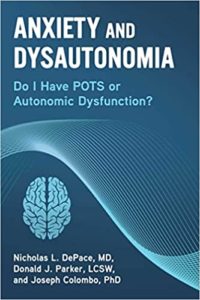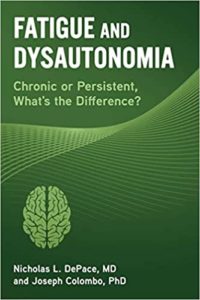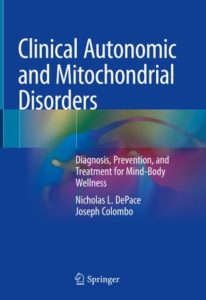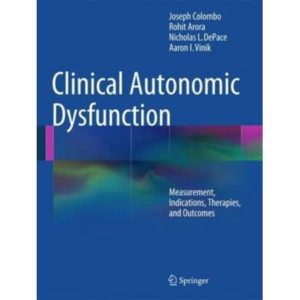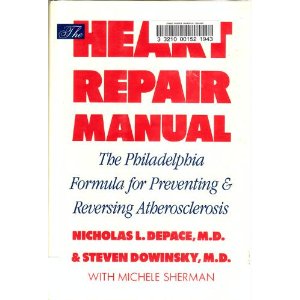Treated Autonomic Dysfunction Should Not Be Disabling
About Dr. Nicholas L. DePace, M.D., F.A.C.C.
Dear Valued Patients
I would like to introduce our new physician assistant Giselle Mas Caballero, PA-C that we have hired at Franklin Cardiovascular. She’s a graduate of Rutgers University and she will be assisting me with hypertensive, cardiovascular and lipid abnormality patients, as well as those with autonomic dysfunction and with connective tissue disease, such as Ehlers-Danlos Syndrome. If you haven’t seen Dr. DePace recently, or do not have a scheduled appointment, he would like to see you personally at the medical center at 1100 Liberty Place, Sicklerville, NJ. We are only seeing patients at this location and we have not been at the old Ganttown Rd., Sewell, NJ location in over 3 years. To call and schedule an appointment, please dial 856-589-6034 or email us at office@franklincardio.com
We are working very hard to reduce waiting times. We are aware that this has been onerous in the past.
With best wishes for a happy and prosperous new year,
Dr. Nicholas L. DePace, MD, FACC
_________________________________________________________________
We Write The Books and Papers!
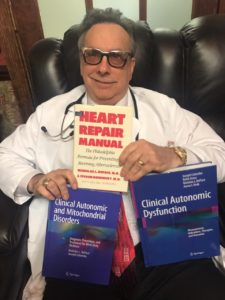
Ehlers-Danlos/Hypermobility Syndromes and Other Connective Tissue Disorders: Assessments, Diagnostics, and Therapies
Book Summary
This book covers Ehlers-Danlos and hypermobility syndromes with an emphasis on treatment of the parasympathetic and sympathetic (P&S) nervous system dysfunctions. Unfortunately, most EDS/HSD patients have been misdiagnosed and misunderstood by providers. EDS/HSD is a multisystem, multifaceted disorder that is poorly understood. The P&S manifestations and treatments are also poorly understood throughout the healthcare community. To this end the authors wish to teach providers and patients alike to reduce the life-long suffering from both the disorder and the marginalization.
There are two aspects of teaching that are required and provided by this book: improved understanding of EDS/HSD and improved understanding of P&S (autonomic) dysfunction and treatment. For example, with the autonomic nervous system, more treatment or therapy is never better. Relief of P&S dysfunction must be low and slow to prevent causing more symptoms from higher doses of medication or polypharmacy. To this end, stress often sets patients back and both providers and patients alike must have proper expectations set for successfully improving patient outcomes (quality of life and productivity).
The book starts with an introduction to and history of the disorder. Chapter II provides a review of the genetics of collagen, the source of the disorders. Chapters III through IX detail the various forms of EDS/HSD and goes into more detail on the more common and more well-known variants of EDS/HSD. Chapter X discusses structural cardiovascular and pulmonary dysfunction associated with EDS/HSD. Chapter XI discusses structural gastrointestinal and urogenital dysfunction associated with EDS/HSD. The book ends with Chapter XII, which details the involvement of the P&S nervous systems and how to treat, which also has general application to other chronic disorders.
This is an ideal guide for rheumatologists and primary care physicians treating patients with Ehlers-Danlos and hypermobility syndromes, and patients and their loved ones in understanding their disease and disorders and the associated treatments and therapies.
This book was published on September 27, 2025. Click here or the image to order
Anxiety and Dysautonomia: Do I Have POTS or Autonomic Dysfunction?
This book was published on September 26, 2023. Click here or the image to order
Book Summary
What causes anxiety to be so prevalent in so many people? How is it best prevented and treated? What can patients and physicians do to better understand this common medical issue?
Anxiety is a component of many physical and mental disorders, from depression to PTSD. Unfortunately, not many patients find relief in the associated therapies and medications, and simply adding more of the same often causes other disorders. Additionally, many who suffer from anxiety may in fact have other, anxiety-like conditions, such as the frequently misdiagnosed postural orthostatic tachycardia syndrome (POTS), which can make any attempt at treatment futile.
But now, with Anxiety and Dysautonomia: Do I Have POTS or Autonomic Dysfunction, Donald J. Parker and physicians Joseph Colombo and Nicholas L. DePace aim to show, with a simplified analysis and discussion focusing on this common patient complaint and how best to treat it, that no longer does anxiety need to be merely managed with the forced lifestyle changes that are often required. Topics covered include:
- Parasympathetic and Sympathetic (P&S) dysfunctions that lead to anxiety-like conditions, plus clear concepts of anxiety and anxiety-like symptoms, the six-pronged Mind-Body Wellness Program, and the P&S nervous systems.
- How many of these anxiety-like conditions are actually caused by a lack of proper blood flow to the brain, which may cause mild symptoms of depression, fatigue, malaise, brain fog, and cognitive and memory difficulties, sleep difficulties and more.
- The way these issues, when exacerbated, may trigger “adrenaline storms” that cycle the anxiety-like symptoms.
- Treatments that in many cases enable a return to a “normal” (as defined by the patient) quality of life, including natural therapies to relieve symptoms and promote wellness.
Presenting discussions with patients and doctors side-by-side to help physicians see how to present information to their patients and patients to learn what physicians need to know to tailor therapy to their individual needs, Anxiety and Dysautonomia is an essential resource for anyone concerned with anxiety and anxiety-like disorders, from medical professionals to patients to family and friends.
Fatigue and Dysautonomia: Chronic or Persistent, What’s the Difference?
This book was published on September 26, 2023. Click here or the image to order
Book Summary
What causes chronic and persistent fatigue in so many people? How is it best prevented and treated? What can patients and physicians do to better understand this common medical issue?
Fatigue is an extremely common component of many physical and mental disorders, from anxiety and depression to heart disease and hypertension. Many patients even find themselves suffering from persistent fatigue with little understanding of how to safely and effectively treat the issue, especially if their symptoms don’t qualify for diagnosis as Chronic Fatigue Syndrome, which can make them “fall through the cracks” of the medical system.
But now, with Fatigue and Dysautonomia: Chronic or Persistent, What’s the Difference?, physicians Joseph Colombo and Nicholas L. DePace aim to close those cracks, offering a simplified analysis and discussion focusing on this common patient complaint and how best to treat it. Topics covered include:
- Parasympathetic and Sympathetic (P&S) causes of both Chronic and “Persistent” Fatigue
- Natural therapies to help relieve Fatigue and promote wellness.
- Concepts of Fatigue, the six-pronged Mind-Body Wellness Program, and the P&S nervous systems.
- Causal relationships between Fatigue and P&S dysfunction (a more specific description of autonomic dysfunction or dysautonomia)
- How to treat fatigue with supplements and lifestyle modifications that have been documented to work without the added side-effects of most pharmaceutical therapies.
Presenting discussions with patients and doctors side-by-side to help physicians see how to present information to their patients and patients to learn what physicians need to know to tailor therapy to their individual needs, Fatigue and Dysautonomia is an essential resource for anyone concerned with fatigue, from medical professionals to patients to family and friends.
This book was published on August 24, 2019. Click here or the image to order
This book was published on October 7, 2014. Click here or the image to order
Insurance Notice
Dearest Patients
September 12, 2023
Effective immediately for all Aetna patients, due to Aetna not recognizing the technology we use for Tilt Table Testing and Sudomotor Testing, we are unable to provide this service to Aetna patients unless payment is made up front for these services. Aetna, unfortunately considers the testing we provide as experimental.
_________________________________________________________________
Although we accept most major insurances, some carriers DO NOT pay for autonomic testing that we provide. All patients are expected to either pay out of pocket for these tests upfront or make a payment arrangement with the billing department. One of the procedure codes we used in the past for testing 95943 was deleted for 2022 and no replacement code was given for the testing machine (Physio PS) we currently utilize for the initial test. This will be an out-of-pocket cost for all insurances We value you as patients but unfortunately, we must insist on this policy at the current time.
_________________________________________________________________
We are affiliated with the Following Hospital Systems
Thomas Jefferson Healthcare System New Jersey
Pennsylvania Hospital/University of Pennsylvania Healthcare System
Virtua Health
_______________________________________
A Letter from Dr. Nicholas DePace
Dearest patients,
Effective immediately our office will no longer be filling out any type of disability forms or FMLA forms. Unfortunately, due to the time consuming nature, Pandemic constraints on the practice, the burden of appeals and constant requests we are deferring all disabilities and/or FMLA decisions up to your family physician. We will provide you or your PCP with a copy
of your visit(s) evaluation upon request.
Thank you for your understanding.
Sincerely,
Nicholas L. Depace, M.D., F.A.C.C.
NOTICE
Franklin Cardiovascular is now partnering with ChartSpan to provide Chronic Care Management. For more information, call our Office at (856) 589-6034 or ask at our Front Desk.






